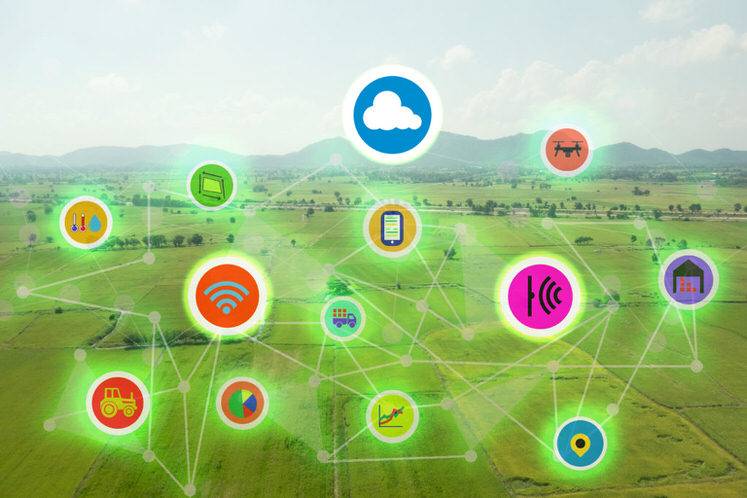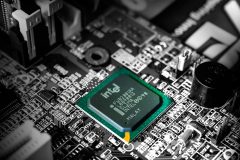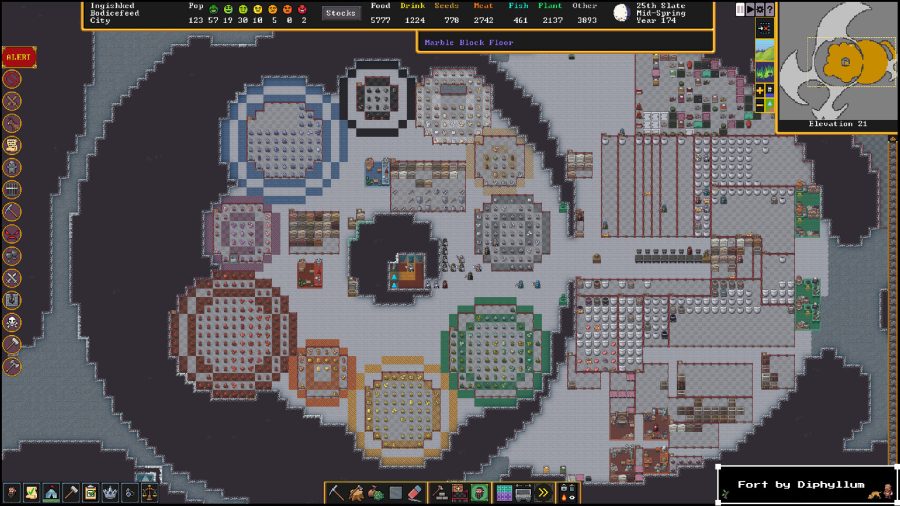Farming is getting smarter every day. From large commercial operations to local organic growers, technology is at the forefront of reducing cost, improving yield and guaranteeing optimal delivery to market. The key ingredient in smart agriculture is data.
Modern farmers have more tools for gathering intelligence than ever before. Soil chemistry data informs fertilization decisions. Moisture sensors and precision irrigation controllers optimize irrigation, while reducing water consumption. Drones precisely apply pesticides. Autonomous harvesters traverse fields under the watchful eye of location and capacity sensors. The list goes on. Almost every agricultural process can be instrumented using sensors generating data that can optimize processes and inform decision making.
The Internet of Things is at the center of this revolution.
IoT hardware has rapidly evolved to offer low-cost sensors for almost every conceivable need. These sensors are being built into IoT devices with battery life that can be measured in years and access to affordable low-power mobile networking.
IoT device management platforms have also evolved rapidly, and have the ability to securely onboard and manage devices on a large scale. IoT cloud services provides suites of application enablement services that can easily be consumed by developers, allowing them to focus on building their application’s business logic. These developments are driving the creation of powerful new IoT applications in almost every vertical, including agriculture.
But what makes today’s farm truly smart? Let me ask that another way. When will smart farm technology reach the point where the domain intelligence it provides exceeds that of experienced professional farmers? The answer may not be as straightforward as you think.
Data is not enough
It‘s true that gathering precise data helps farmers make better decisions. Obtaining soil moisture readings at several depths definitely provides more precise information than if the farmer simply sticks a finger down in the soil. Satellite weather reports provide better forecasting than the farmer’s old barometric weather station. Precise soil chemistry data can help a farmer fertilize the soil, at the lowest cost per acre, and avoid the risk of some soil-borne diseases. A precisely controlled low-flying drone may apply pesticide more efficiently than a traditional crop duster.
But this data simply informs the farmer. It is the farmer’s experience that integrates this intelligence to make the best decisions to optimize operations. An assortment of technology “tools” is not enough.

Smart farming calls for data integration . . .
The applications themselves that the farmer uses must be designed and built with the ability to communicate and work together to optimize outcomes. An experienced farmer intuitively integrates all of the knowledge available. Irrigation decisions will not simply be based on the weather and the type of crop, but by the nature of the soil and its chemical composition. It’s not enough to know how to efficiently apply pesticides over an area. A farmer will also consider the irrigation cycle to maximize the effectiveness of the pesticide.
The problem with many of today’s smart farm IoT technologies is that these applications exist in silos. Even if fully-automated, they do not work efficiently together. The algorithms for scheduling irrigation don’t take into account when fertilizer was last applied.
A truly smart farm is one that can be highly automated so even a novice farmer can optimize their operation. But to do so, valuable data from the many silos throughout the farming operation must easily and automatically integrate.
. . . And IoT service creation and enrichment platforms
A new class of IoT platform-building technology now provides such capabilities — IoT service creation and enrichment platforms (SCEP). SCEPs, such as Accelerite’s Concert IoT, provide a suite of complementary services that developers can use to create cloud-based IoT applications while building and monetizing application partner ecosystems. IoT platforms for vertical markets such as smart farms enable developers to create ecosystems of highly integrated and targeted apps.
However, a full-featured SCEP must provide these three critical capabilities for IoT application developers:
- Tools for visually modeling and orchestrating IoT applications, allowing non-programmers to participate in developing and refining IoT solutions. With a smart farm platform, the farmer should be able to modify the application without extensive programming effort. This reduces the development cost and time required to create and evolve the applications.
- An IoT “platform builder” offered as a service, with capability to easily create new platforms from the applications themselves. Applications use the platform builder to expose APIs, allowing their services to be leveraged by partner applications. API and partner management capabilities, integrated into the SCEP, allow application developers to create and offer new, vertically-oriented IoT platforms-as-a-service.
- A monetization engine that simplifies forming commercial relationships with partners who want applications as services and data via APIs.
SCEPs build on existing IoT enablement cloud platforms, such as Microsoft Azure and Amazon Web Services IoT, and are designed to complement the suite of IoT services offered by these platforms.
With SCEP technology, IoT vendors across agriculture, manufacturing, retail, supply chain and logistics, and government can not only rapidly create ecosystems of innovative IoT applications, but can integrate – even monetize — those applications by offering them as platforms to additional application partners. And when a farm runs on such a service creation and enrichment platform, instead of silos, the underlying data throughout the entire agriculture operation grows smarter each day. The farmer can fine-tune operations, based on precision intelligence and knowledge from an ecosystem of partners. It’s when the vision of a truly smart farm becomes reality.
Interested in learning more about building an IoT service-oriented application ecosystem, optimized for targeted industry markets such as agriculture? Contact us for an introductory demo on the Concert IoT service creation and enrichment platform today.
This article was produced in partnership with Accelerite.









